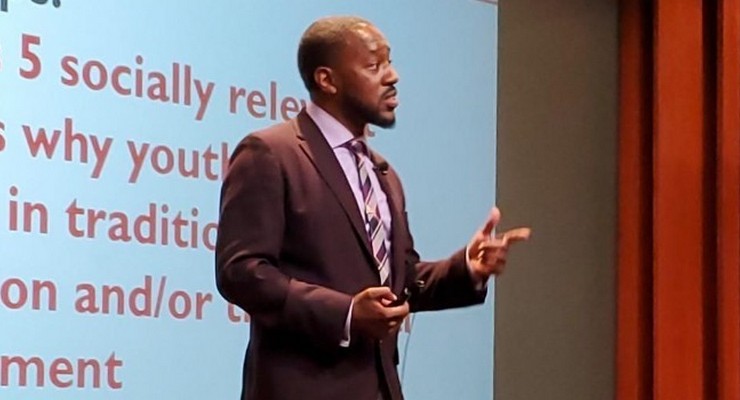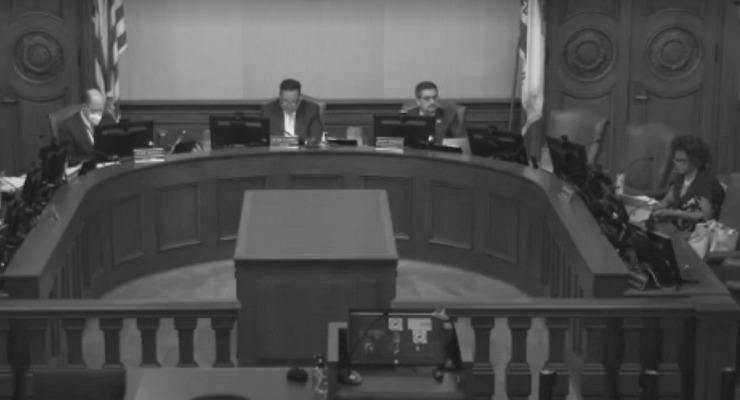
Trauma-informed care is an approach used to engage people with histories of trauma. It recognizes the presence of trauma symptoms and acknowledges the role that trauma can play in people’s lives, according to a definition published by Substance Abuse and Mental Health Services Administration of the U.S. Department of Health and Human Services.
Vallantine is the developer of the Live Above The Hype Life Skills Curriculum, a common core aligned, character development curriculum that uses hip hop culture, pop culture and street culture as backdrop to cultivate self development and offer practical life applicable education.
His most recent book “Beyond The Crack Generation: Surviving A Trauma Organized Culture,” is currently used as college level coursework applicable for undergraduate and graduate level studies in education, social work services, sociology and African-American studies.
Speaking to commissioners, Vallantine said trauma is a response to an event, series of events, or set of circumstances that is experienced by an individual as physically or emotionally harmful or life threatening and that has lasting adverse effects.
“It doesn’t just go away. The key to healing from trauma is ‘I have to consistently be in safe spaces that allow me to consistently heal from whatever it was.’”
When talking about trauma informed approaches, Vallantine said people providing services to the community should consider trauma as a source of problematic behavior. “It is not assuming that trauma is the source but is considering.”
According to Vallantine, traumatic experiences come in many forms such as war, homelessness, domestic violence, abuse, neglect, community violence, abandonment, incarceration, drug and alcohol abuse, accidents, chronic illness and natural disasters.
He said those providing community care should be aware of the physical and psychological symptoms of trauma when engaging the community.
Physical symptoms include insomnia, racing heartbeat, muscle tension, easily startled, aches and pains, edginess, agitation, headaches, nausea and vomiting
Psychological symptoms include confusion, difficulty concentrating, insecurities, repressed memories, detachment, constant fear, denial and disbelief, flashback and low self-esteem.
He said traumatized people respond to threats by fighting, fleeing or freezing, “depending on what our brain feels will keep us safe in the moment.”
Aside from individual trauma he also defined community trauma.
“(It) is a blow to the basic fabric of social life that damages the bonds attaching people together and impairs the prevailing sense of community,” said Vallantine.
Vallantine said trauma healing has three stages: stabilization (stress management/self care), addressing the narrative (self-awareness) and building a new life (professional support).
He said when working with the community the first thing that should be done is to make sure that they feel physically and emotionally safe.
“Safety is above all. If a person does not feel safe, there is no way I can engage them,” he said.
When engaging the community in a trauma-informed approach, professional boundaries should be maintained, there should be collaboration, transparency, and approaches must be culturally relevant.
Prior to convening in October 2021, members of the Commissioner also underwent 30 hours of training to learn about how the police department operates.
Part of the key objectives in the Commission’s 2022:2023 work plan is to conduct Community Police Oversight Commission-sponsored trainings for the Commission, the community, and the Police Department.














 0 comments
0 comments


